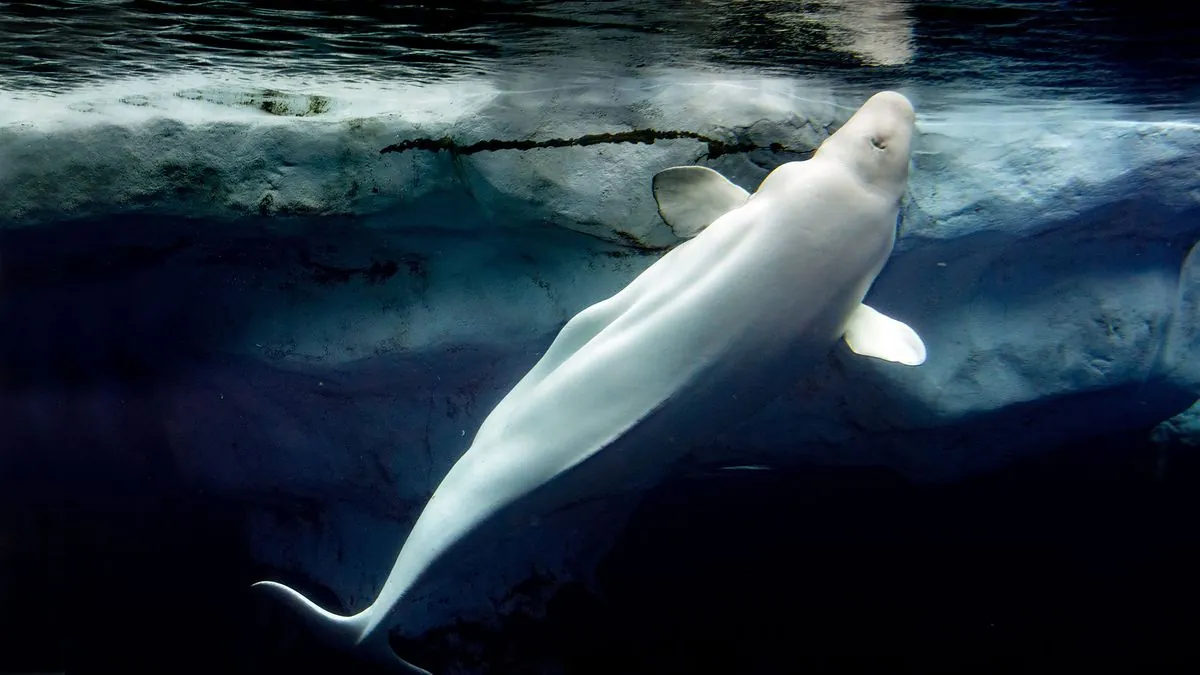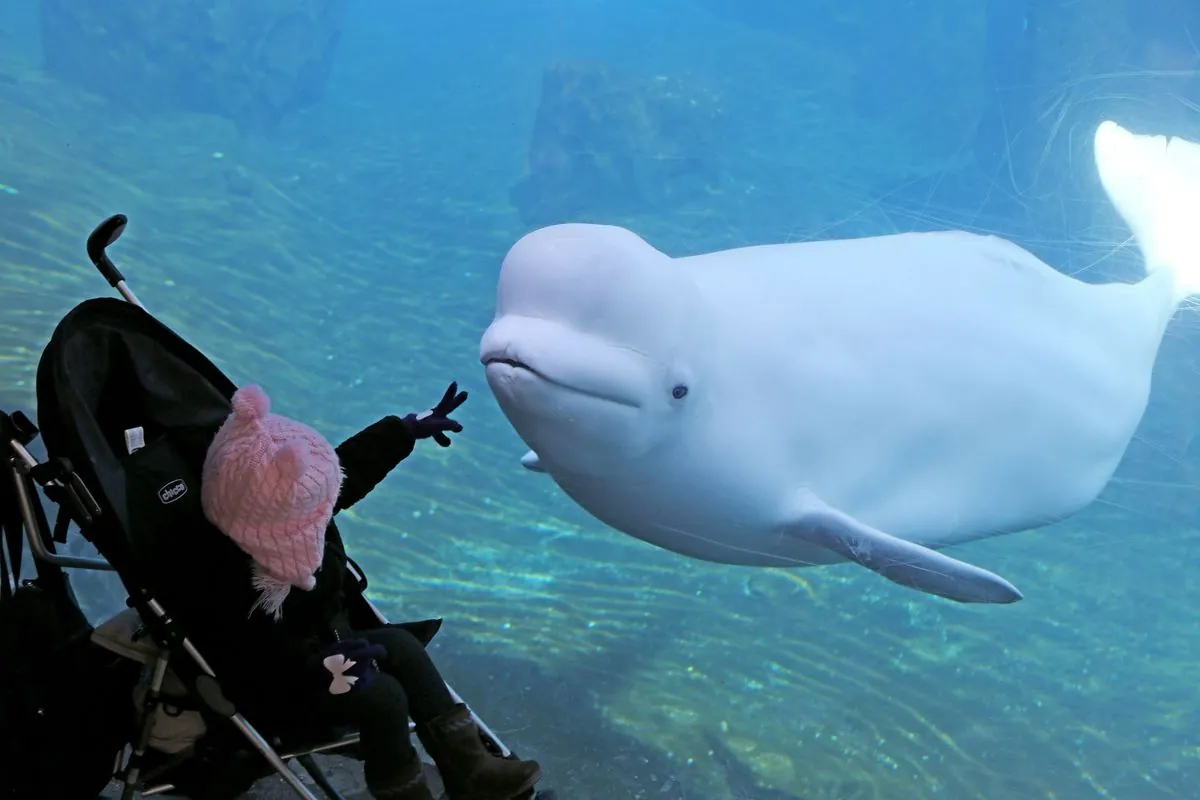Mysterious 'Russian Spy' Beluga Whale Found Dead in Norwegian Waters
A beluga whale, once suspected of being a Russian spy, has been found dead in southern Norway. The whale, named Hvaldimir, had been monitored since its discovery in 2019.

A beluga whale, previously suspected of being involved in Russian espionage activities, has been discovered deceased in southern Norwegian waters. The whale, affectionately named Hvaldimir, had been under observation since its initial sighting in 2019.
Hvaldimir, whose name combines the Norwegian word for whale and a nod to Russian President Vladimir Putin, was found floating lifeless by local fishermen during the weekend of August 31-September 1, 2024. This discovery comes approximately five years after the whale first appeared in Norwegian territory, sparking intrigue and speculation about its origins.
The Marine Mind NGO, which had been monitoring Hvaldimir, expressed deep sorrow at the news. They described the whale not merely as a marine mammal, but as a symbol of hope and a testament to the profound connection between humans and nature.
When Hvaldimir was first encountered in 2019 near Ingoya island, approximately 300 kilometers from the Russian maritime border, he was wearing a harness that appeared designed to mount a small camera. The harness bore the inscription "Equipment St Petersburg" in English, fueling suspicions about the whale's possible involvement in Russian marine operations.
Beluga whales, known for their distinctive white coloration and bulbous foreheads, have been utilized by various militaries for tasks such as object recovery and surveillance. These intelligent cetaceans are capable of diving to depths of 800 meters and can remain submerged for up to 25 minutes. Their ability to mimic human speech and their wide range of vocalizations have earned them the nickname "sea canaries."
Hvaldimir's friendly demeanor towards humans and responsiveness to hand signals led Norway's domestic intelligence agency to hypothesize that he had been part of a Russian research program before crossing into Norwegian waters. However, Moscow has never addressed these allegations.
Marine biologist Sebastian Strand, associated with Marine Mind, expressed shock at the whale's sudden demise. He noted that Hvaldimir had appeared to be in good health as recently as August 30, 2024, making the cause of death uncertain. Initial examinations revealed no significant external injuries on the whale's body.

Beluga whales typically have a lifespan of 35-50 years in the wild and are known for their social nature, often living in pods. They possess a flexible neck allowing them to turn their heads in all directions, and uniquely among whales, they can swim backwards. These adaptable creatures inhabit Arctic and sub-Arctic waters, feeding on a varied diet of fish, squid, and crustaceans.
The loss of Hvaldimir highlights the ongoing challenges faced by beluga whales, which are considered near threatened by the IUCN due to hunting and habitat loss. As investigations into the cause of Hvaldimir's death continue, his story serves as a reminder of the complex interactions between human activities and marine life in the Arctic region.
"Hvaldimir was not just a beluga whale; he was a beacon of hope, a symbol of connection, and a reminder of the deep bond between humans and the natural world."


































